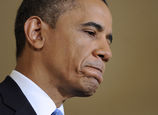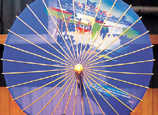
Dealers and carmakers are responsible for applying for the benefits on behalf of the customers. But they also enjoy the subsidies, which they pass on to the consumer. But despite all the attractive deals, prospective buyers are taking a wait-and-see approach.
Cost is still a factor as without the government subsidies, the modest-looking Roewe E50 is almost as expensive as the entry-level model of any luxury brand. Xu said many carmakers have maintained their price as they "have confidence in the continuation of policy."
Another major reason for the lack of enthusiasm is the very few charging facilities. Shanghai has only 12 charging stations and 1,710 charging poles but many of the residential complexes and business centers remain unplugged.
Qian can charge his car at his workplace at the Shanghai International Automobile City in suburban Jiading District, which set up China's first Electric Vehicle International Demonstration Zone last April.
"I don't need to charge every day. The maximum mileage of Roewe E50 is 180 kilometers while my daily round trip between home and work is just 20km," Qian said.
Xu said many electric cars can also be plugged into normal 220-volt outlets at home, but Shanghai Electric Power Co has voiced safety concerns.
Developing public charging infrastructure is difficult because it needs the nod of property owners while buying a private charging pole can cost around 10,000 yuan. The power company is willing to instill it for free but the gird capacity is an issue.
The Roewe E50's operational cost is only one-tenth of that of a normal sedan, which means Qian will save up to 1,000 yuan every month.
Yet he has no plans to sell his old car, which he intends to use for long-distance travel.

















 Beijing style: Duck, opera, fog and cough...
Beijing style: Duck, opera, fog and cough...


![]()
